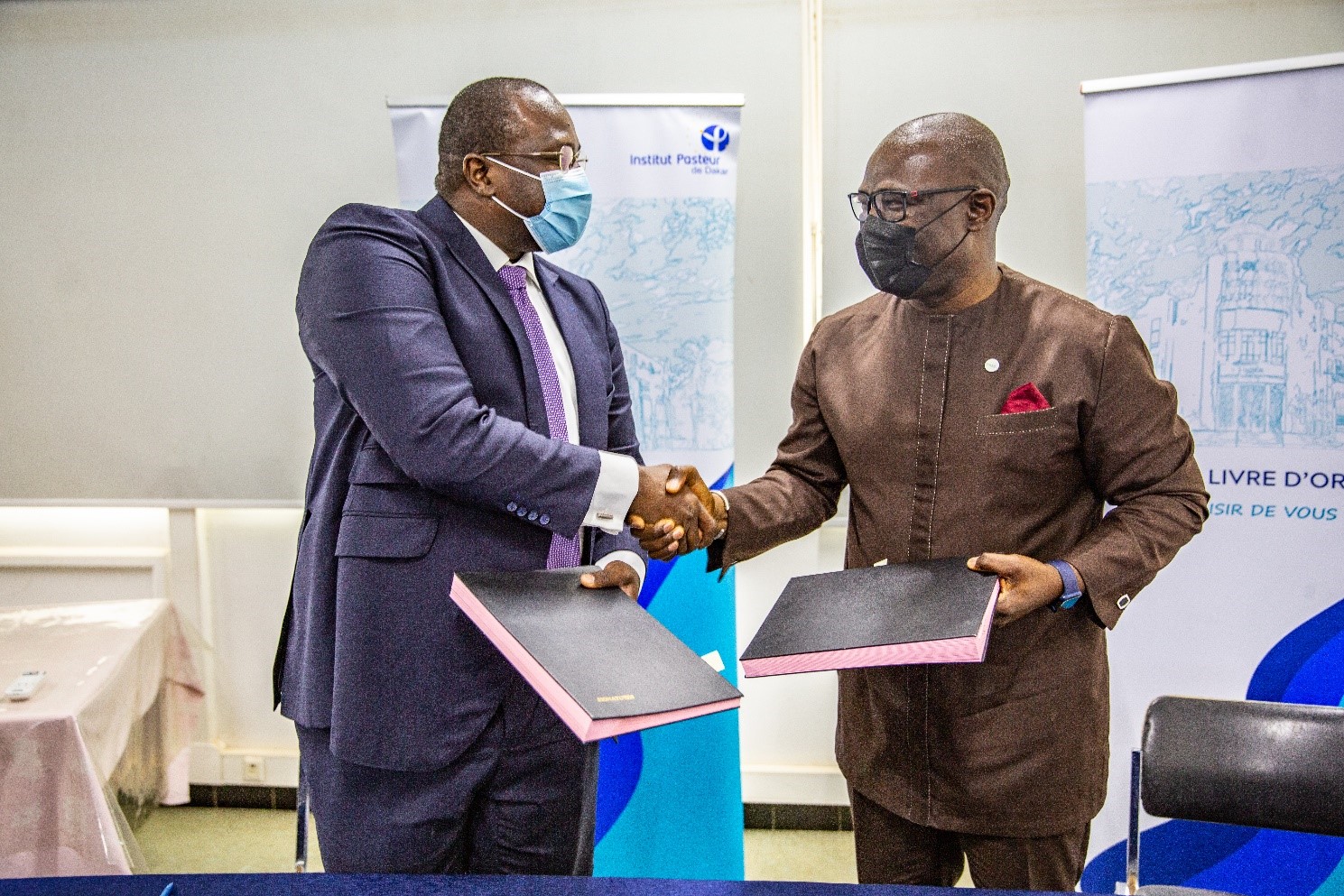|
Getting your Trinity Audio player ready…
|
The African Risk Capacity (ARC) Group and the Fondation Institut Pasteur de Dakar (IP Dakar) yesterday signed a Memorandum of Understanding (MoU) establishing a collaborative framework to assist African Union Member States to better prepare, plan and respond to epidemics and other high-impact infectious disease outbreaks.
Under the agreement, IP Dakar and ARC Agency will join forces and leverage their individual expertise to support the evaluation of AU member states capacities for epidemiological surveillance, outbreak response, and laboratory diagnostics. This will be beneficial for contingency planning and providing a timely response to disease outbreaks and mitigating outbreak situations.
Speaking at the signing of the MoU at the headquarters of the IP Dakar in Senegal, UN-ASG Ibrahima Cheikh Diong, Director-General of the ARC Group, indicates that the combined expertise of the two agencies would provide a unified front against infectious disease outbreaks for Africa. “We have reliably proven that a forecast-based anticipatory approach, aided by predictive analytics and risk analysis, provides faster, more cost-efficient and more dignified response ahead of climate and other natural hazards.” Contingency planning built into the ARC model has helped to provide customised early warning to participating Member States thereby saving more lives and livelihoods in the event of a disaster. “A formalised partnership with IP Dakar through its newly established Center for Africa Resilience to Epidemics will enable us to mutually leverage each agency’s expertise, and that of other stakeholders, to provide a pan-African approach to build synergies for holistic, timely, and effective early action against identified disease outbreaks” concludes Mr. Diong.
The Outbreaks and Epidemics Programme of the ARC Group was built on its sovereign parametric risk insurance model which has delivered impressive and lifesaving results against drought and tropical cyclone for participating African countries. Targeted at 4 diseases of epidemic potential including acute haemorrhagic fevers (Ebola, Marburg, and Lassa fever), and Meningitis, it aims to equip AU member states with an array epidemic preparedness and response tools (risk profiling, risk modelling, contingency planning) combined with adapted funding options, to swiftly contain and stop the spread of disease outbreaks.
In his remarks, Dr Amadou Alpha Sall, the Managing Director of IP Dakar, welcomes the partnership with the Specialized Agency of the African Union, the ARC Group, stating that such collaboration will be a win-win for combatting outbreaks and epidemics in Senegal and the entire African region. “We are the foremost biomedical research centre in Senegal deploying cutting-edge research and diagnostic services that extend to production and distribution of human vaccines, knowledge development, and sharing. Since inception, our approach has continued to help in saving lives by preventing most disease epidemics. Therefore, we are very optimistic that a partnership with ARC will further strengthen our public health interventions by providing us with the requisite anticipatory tools and expertise for early response against outbreaks and epidemics in a more contingent manner.”
Under the MoU, the IP Dakar and its technical partners will support the continuous development of realistic outbreak response scenarios and spearhead the validation of national contingency plans in West African countries using the Risk Analytics and Disease Modelling tools as well as Contingency Planning Guidelines which ARC has developed and those of the IP Dakar to improve preparedness, planning, and efficiency of response to epidemic-prone diseases. This will guide countries in the development of costed-and pathogen-specific response scenarios upon declaration of an outbreak for deploying first national response plans.
